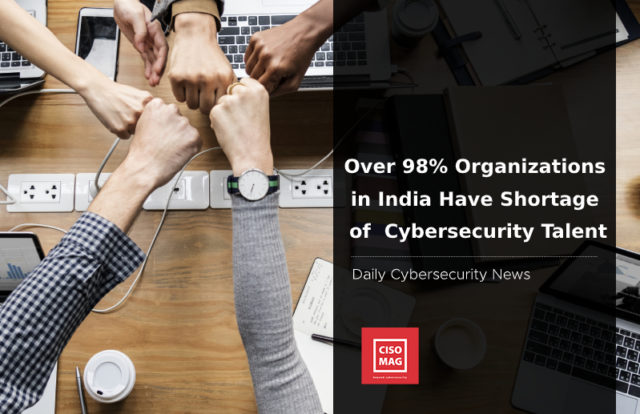
Arguments surrounding the cybersecurity skill gap often make a redundant appearance in every serious infosec discussion. And even though, it is a topic that has had its right share of the limelight, the infosec industry continues to be plagued by the talent shortage. The newest into this debacle is India — a country with one of the highest numbers of young population in the world and over 98% organizations in the country — has shortages in their security operations staffing.
A recent study by software firm Micro Focus indicates that India reports the strongest concern in comparison to its global peers when it comes to tackling the increased volume of cyber threats and security incidents. The study also noted that 96% of organizations use Cloud for IT security operations. It also highlighted the increased cyberattacks organizations had to face due to the onset of COVID-19.
“As a fast-developing economy, India is witnessing a rapid adoption of digital tools and services within its enterprise ecosystem. The unprecedented adoption of cloud is also giving rise to newer vulnerabilities and cybersecurity challenges,” said Praveen Patil Country Manager – Security, Risk & Governance Micro Focus, India. “Our latest State of Security Operations report highlights the key security issues faced by organizations across several industries, and requirements for advanced tools and capabilities to address the same.”
“The odds are stacked against today’s SOCs: more data, more sophisticated attacks, and larger surface areas to monitor. However, when properly implemented, AI technologies such as unsupervised machine learning, are helping to fuel next-generation security operations, as evidenced by this year’s report,” said Stephan Jou, CTO Interset at Micro Focus. “We’re observing more and more enterprises discovering that AI and ML can be remarkably effective and augment advanced threat detection and response capabilities, thereby accelerating the ability of SecOps teams to better protect the enterprise.”
It is alarming to find that cybersecurity, which offers one of the most lucrative job opportunities in tech, with literally zero percent unemployment, remains the one struggling to attract talent. There has been discussion around education being one of the dominant reasons. Talented professionals may not have access to the right kind of education that could help them land one of these lucrative opportunities.
There are many that believe the biggest threat to cybersecurity is the lack of talent. Without enough people to man the battle stations, it’s no wonder so many companies face a breach at one point or another. Earlier this year, a study by Ponemon suggested that the lack of skilled personnel has become the biggest barrier for cybersecurity in deploying security automation.
The picture isn’t so rosy in the C-suite either. Earlier, EC-Council surveyed its pool of Certified CISOs in regions spanning from South America, Europe, Asia, Middle East, the U.S., and Africa, to discover what is important to information security executives. The research pointed out that most CISOs have several job openings yet to be filled, and CISOs and the others involved in the recruiting process are looking for prospects with relevant certifications and experience.










